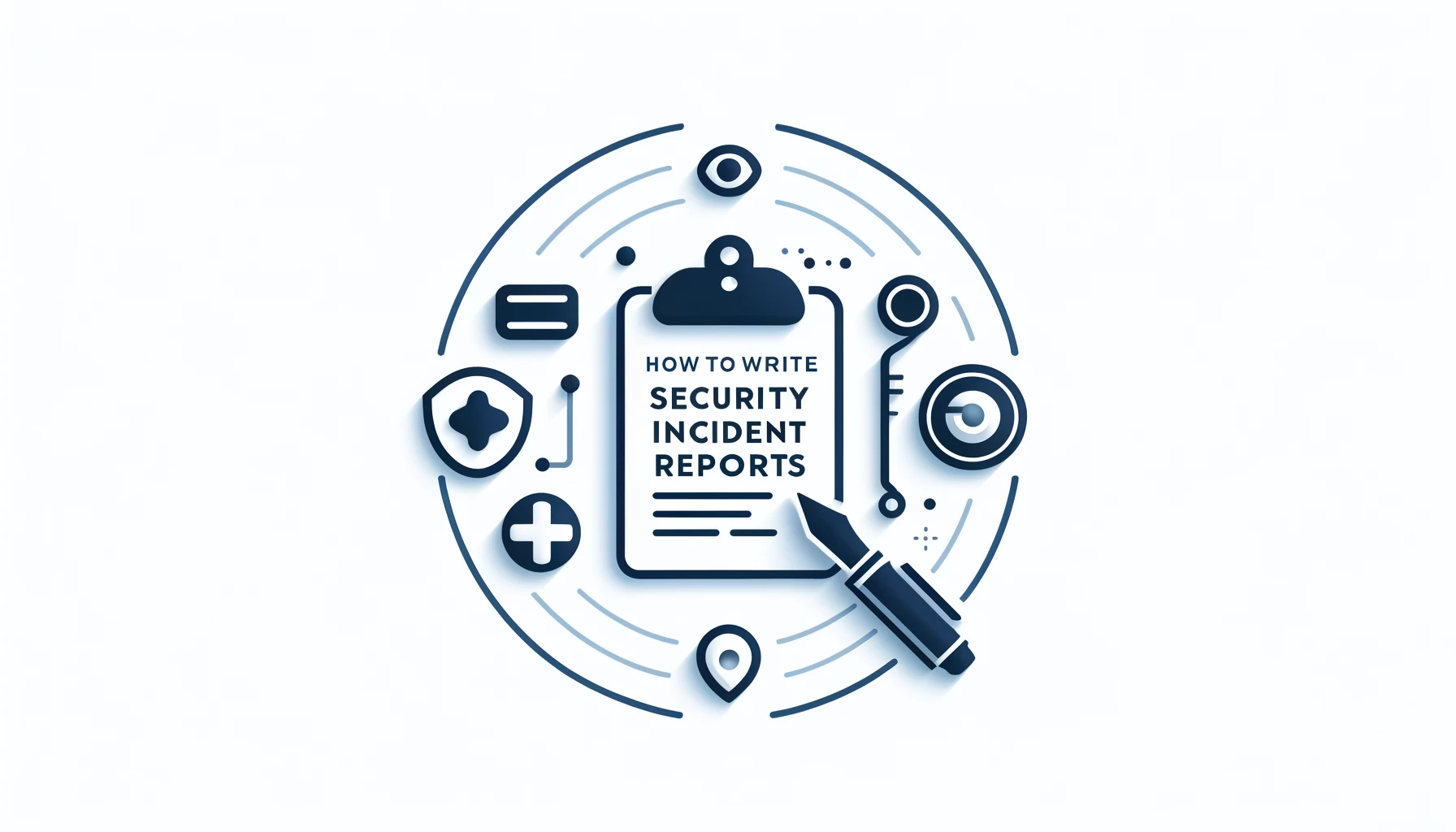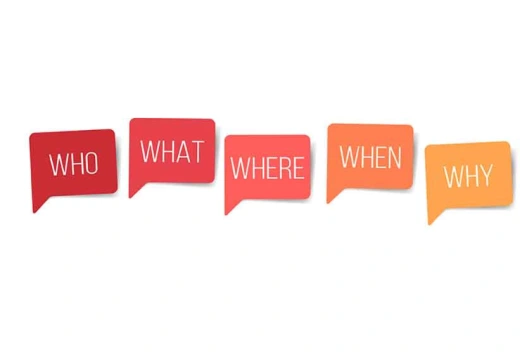A vital task that security guards will have is note taking and reporting incidents. But how do security guards report a security incident? In this article we'll be discussing how security guards report security incidents.

What is a security incident?
A security incident is when there has been a breach in a business's safety. This breach could be a physical occasion such as a criminal breaking into a business or it could be a breach of the company's online presence such as somebody stealing their personal data or hacking into their website.
Table of Contents
Security incidents often cause businesses to have a lack of safety and protection. There are many different types of security breaches or incidents that guards might have to face. Some of these are where businesses' building or assets get damaged by criminals, an incident where a company's personal data is stolen, an incident where a member of the public gets hurt by a criminal, or an incident where unauthorised people, such as trespassers or thieves, try to enter on a business's property. Sometimes a security incident could even be a security guard behaving badly.
How should security guards handle security incidents? When a security incident is happening, security guards will first have to deal with the incident themselves before reporting it. Security guard training courses usually cover most of the situations faced by security guards. And while guards are dealing with security incidents, it's important that they stay calm and follow the security company's own procedures. Security guards will sometimes have to deal with these situations by themselves, but they may also have to call for additional help, such as contacting the emergency services like the police or ambulance services. For example, if they are dealing with a security incident where a member of the public gets hurt, a security guard will call for help such as contacting the emergency services so that the person can get the best care that they need.

How do security guards write incidents reports?
After a security situation has happened, security guards will then have to write an incident report about it. These incident reports can either be handwritten or typed out on a computer and when guards are writing these reports it's best that they keep them simple and stick to the facts. A security incident report needs to tell a basic story of what has happened and most security incident reports will be answering a series of different questions. The five W's to keep in mind while writing report are who, what, when, where and why.
What
The first question that security guards will answer when writing a security report is what. The what section is where security guards can write a detailed description of what has happened. When guards are writing this section it's important that they write chronologically so that the reader can get a more accurate picture of what has happened and how the incident took place.
Who
The second question that guards will answer is the who and this section includes whether guards or any individuals during the incident. This could be criminals who were causing the incident or any innocent bystanders who saw the incident happen. If a security guard does have an eyewitness for the incident, it is a good idea to include their contact details in this section.
When
The third question that guards will answer is when. During this section, security guards should write a timeframe of when the incident took place. If there has been CCTV footage that has recorded the security incident, security guards can take an exact timeframe from the footage. However, if there's been no CCTV footage, guards can include a rough timing of when the incident took place instead.
Where
The fourth question that guards will answer is where. During this section, security guards will write where the incident took place. This could be the address of the property, the building that the incident has happened in, and any other important information about the location, such as whether it was well lit or not.
Why
The final section that security guards will write about during an incident report is the why. Now this section is the trickiest section to write about as it includes writing about why the incident has happened in the first place. And sometimes security guards won't know the exact reason why a security incident has happened. So if a guard doesn't know why an incident has happened, it's okay to leave this section blank. But if a security guard does know why an incident has happened, it's important that they include the reason within this section.
Online Security Guard Training
Enroll in Our Ministry Recognized 40-Hour Ontario Security Guard Training Course. Start your training online now!
Enroll Now!What part of a security incident should be logged?
While guards are writing an incident report, they may have to log some sections, and it's important that guards log key details such as when and where a security incident took place. And when guards are logging these details, it's important that they organise them in a clear way so it's easy to understand. Another thing that security guards can log is evidence. This evidence could be photographs, video footage, or even eyewitness statements of the incident that took place. Logging evidence can be beneficial to a security incident report as it allows the reader to get a more accurate and clear picture of what happened during the incident.
Tips for writing a professional security report
All aspects of security are time-sensitive, and documentation is no exception. Your security report should be on-time, professional and easy to understand. Here are some tips for ensuring that report you write reflect objectivity and accuracy:
- Clarity and Conciseness: Use clear, straightforward language and avoid unnecessary jargon or technical terms. The report should be easily understandable to all readers.
- Fact-based Reporting: Stick to the facts and avoid assumptions or personal opinions. Objectivity is important in incident reporting.
- Evidence Documentation: Include any available evidence, such as photographs, videos, or eyewitness statements, to support the account of the incident.
- Promptness: Complete the incident report as soon as possible after the event to ensure accuracy and prevent loss of critical details.
- Avoid emotional language: A security report is not creative writing. It should include details that describe the situation and incident, but it should not reflect your personal emotional state.
Example Security Incident Report
Here is an example to give you an idea of a good security report. Remember, your report should show a third-person perspective. You should also write it in the past-tense and avoid emotion or bias.
Incident ReportName of Security guard on Duty: John Doe
Date: 10/04/2024
Time of Initial Interaction: 7:16 p.m.
Time of Resolution: 8:35 p.m.
Location: Second-floor entrance to XYZ Corporation headquarters
Involved Parties:
- John Doe, Security Officer, XYZ Corporation Security Team
- Jane Smith, Employee, XYZ Corporation
- Unidentified Male, approximately 30 years old, 6 feet tall, wearing a blue jacket and black hat
Use of Physical Force: None
Incident Details:
Security Officer John Doe observed an unidentified male attempting to enter the building without proper identification. The individual followed closely behind employee Jane Smith, exploiting the open door to bypass security protocols. Upon noticing the breach, Officer Doe approached the individual, who then fled the scene. The incident was captured on CCTV, and footage has been retained for further investigation.
The incident appears to be an attempted unauthorized entry, possibly for theft or espionage. Quick response by the security personnel prevented potential harm or property loss.
Actions Taken:Officer Doe immediately approached the individual, causing him to flee. The incident was reported to local law enforcement for potential follow-up. A review of security footage was conducted to gather more details about the suspect. An internal alert was issued to increase awareness and vigilance among staff.
Online Security Guard Training
Enroll in Our Ministry Recognized 40-Hour Ontario Security Guard Training Course. Start your training online now!
Enroll Now!

